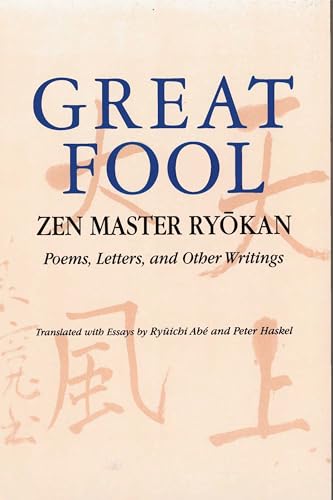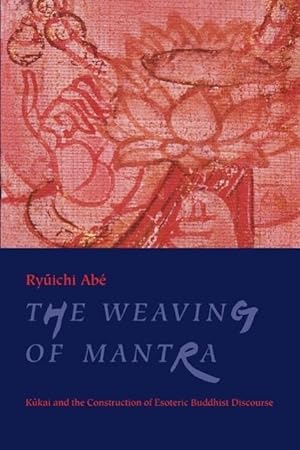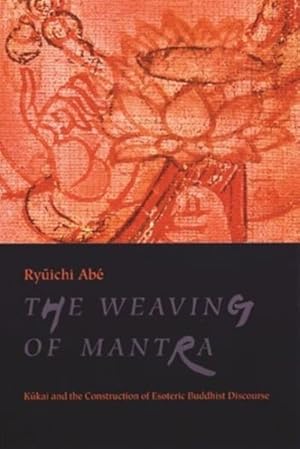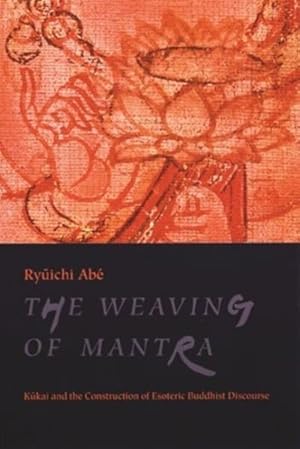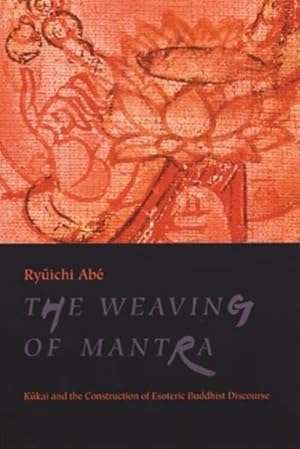abe ryuichi (90 résultats)
CommentairesFiltres de recherche
Type d'article
- Tous les types de produits
- Livres (90)
- Magazines & Périodiques (Aucun autre résultat ne correspond à ces critères)
- Bandes dessinées (Aucun autre résultat ne correspond à ces critères)
- Partitions de musique (Aucun autre résultat ne correspond à ces critères)
- Art, Affiches et Gravures (Aucun autre résultat ne correspond à ces critères)
- Photographies (Aucun autre résultat ne correspond à ces critères)
- Cartes (Aucun autre résultat ne correspond à ces critères)
- Manuscrits & Papiers anciens (Aucun autre résultat ne correspond à ces critères)
Etat En savoir plus
- Neuf (31)
- Comme neuf, Très bon ou Bon (55)
- Assez bon ou satisfaisant (3)
- Moyen ou mauvais (1)
- Conformément à la description (Aucun autre résultat ne correspond à ces critères)
Particularités
- Ed. originale (Aucun autre résultat ne correspond à ces critères)
- Signé (Aucun autre résultat ne correspond à ces critères)
- Jaquette (2)
- Avec images (22)
- Sans impressions à la demande (88)
Langue (2)
Livraison gratuite
- Livraison gratuite à destination de France (Aucun autre résultat ne correspond à ces critères)
Pays
Evaluation du vendeur
-
The Awakening of Faith: Attributed to Asvaghosha
Edité par Columbia University Press, NY, 2006
ISBN 10 : 0231131577 ISBN 13 : 9780231131575
Langue: anglais
EUR 10,52
Autre deviseEUR 25,59 expédition depuis Etats-Unis vers FranceQuantité disponible : 1 disponible(s)
Ajouter au panierPaperback. Etat : Very Good. A nice, solid copy. ; Translations from the Asian Classics; 8.8 X 6 X 0.33 inches; 117 pages.
-
The Great Fool - Zen Master Ryokan; Poems, Letters, and Other Writings
Edité par MP-HAW University of Hawai'i, 1996
ISBN 10 : 082481777X ISBN 13 : 9780824817770
Langue: anglais
Vendeur : PBShop.store UK, Fairford, GLOS, Royaume-Uni
EUR 33,79
Autre deviseEUR 5,53 expédition depuis Royaume-Uni vers FranceQuantité disponible : 1 disponible(s)
Ajouter au panierPAP. Etat : New. New Book. Shipped from UK. Established seller since 2000.
-
The Great Fool Zen Master Ryokan; Poems, Letters, and Other Writings
Vendeur : Revaluation Books, Exeter, Royaume-Uni
EUR 27,73
Autre deviseEUR 11,45 expédition depuis Royaume-Uni vers FranceQuantité disponible : 1 disponible(s)
Ajouter au panierPaperback. Etat : Brand New. 376 pages. 9.25x6.25x0.75 inches. In Stock.
-
Awakening of Faith : Attributed to Asvaghosha
Edité par Columbia University Press, 2005
ISBN 10 : 0231131577 ISBN 13 : 9780231131575
Langue: anglais
Vendeur : GreatBookPrices, Columbia, MD, Etats-Unis
EUR 28,27
Autre deviseEUR 17,08 expédition depuis Etats-Unis vers FranceQuantité disponible : 3 disponible(s)
Ajouter au panierEtat : New.
-
Awakening of Faith : Attributed to Asvaghosha
Edité par Columbia University Press, 2005
ISBN 10 : 0231131577 ISBN 13 : 9780231131575
Langue: anglais
Vendeur : GreatBookPrices, Columbia, MD, Etats-Unis
EUR 29,04
Autre deviseEUR 17,08 expédition depuis Etats-Unis vers FranceQuantité disponible : 3 disponible(s)
Ajouter au panierEtat : As New. Unread book in perfect condition.
-
Awakening of Faith : Attributed to Asvaghosha
Edité par Columbia University Press, 2005
ISBN 10 : 0231131577 ISBN 13 : 9780231131575
Langue: anglais
Vendeur : GreatBookPricesUK, Woodford Green, Royaume-Uni
EUR 30,23
Autre deviseEUR 17,18 expédition depuis Royaume-Uni vers FranceQuantité disponible : 3 disponible(s)
Ajouter au panierEtat : New.
-
The Weaving of Mantra: Kûkai and the Construction of Esoteric Buddhist
Edité par Columbia University Press, 2000
ISBN 10 : 0231112874 ISBN 13 : 9780231112871
Langue: anglais
Vendeur : Optimon Books, Gravesend, KENT, Royaume-Uni
EUR 41,28
Autre deviseEUR 8,02 expédition depuis Royaume-Uni vers FranceQuantité disponible : 1 disponible(s)
Ajouter au panierPaperback. Etat : Fair. Close to good condition. Light creasing and damage to front cover, pages crisp and clear. The great Buddhist priest Kkai (774-835) is credited with the introduction and establishment of tantric -or esoteric -Buddhism in early ninth-century Japan. Ryichi Abe examines this important religious figure -neglected in modern academic literature -and his profound influence on Japanese culture. Offering a radically new approach to the study of early religious history -combining historical research, discourse analysis, literary criticism, and semiology. Abe contends that the importance of Kkai's transmission of esoteric Buddhism to Japan lay not in the foundation of a new sect but in his creation of a general theory of language grounded in the ritual speech of mantra. It embeds Kkai within the fabric of political and social life in ninth-century Japan and explains how esoteric Buddhism played a crucial role in many societal changes in Japan -from the growth of monasteries into major feudal powers to the formation of the native phonetic alphabet, kana.
-
Awakening of Faith : Attributed to Asvaghosha
Edité par Columbia University Press, 2005
ISBN 10 : 0231131577 ISBN 13 : 9780231131575
Langue: anglais
Vendeur : GreatBookPricesUK, Woodford Green, Royaume-Uni
EUR 32,20
Autre deviseEUR 17,18 expédition depuis Royaume-Uni vers FranceQuantité disponible : 3 disponible(s)
Ajouter au panierEtat : As New. Unread book in perfect condition.
-
Great Fool: Zen Master Ryōkan Poems, Letters, and Other Writings
Vendeur : moluna, Greven, Allemagne
EUR 38,76
Autre deviseEUR 9,70 expédition depuis Allemagne vers FranceQuantité disponible : 1 disponible(s)
Ajouter au panierEtat : New.
-
Great Fool : Zen Master Ryokan : Poems, Letters, and Other Writings
Edité par University of Hawaii Press, 1996
ISBN 10 : 082481777X ISBN 13 : 9780824817770
Langue: anglais
Vendeur : GreatBookPrices, Columbia, MD, Etats-Unis
EUR 33,40
Autre deviseEUR 17,08 expédition depuis Etats-Unis vers FranceQuantité disponible : 1 disponible(s)
Ajouter au panierEtat : As New. Unread book in perfect condition.
-
Great Fool : Zen Master Ryokan : Poems, Letters, and Other Writings
Edité par University of Hawaii Press, 1996
ISBN 10 : 082481777X ISBN 13 : 9780824817770
Langue: anglais
Vendeur : GreatBookPricesUK, Woodford Green, Royaume-Uni
EUR 33,77
Autre deviseEUR 17,18 expédition depuis Royaume-Uni vers FranceQuantité disponible : 1 disponible(s)
Ajouter au panierEtat : New.
-
The Weaving of Mantra: Kukai and the Construction of Esoteric Buddhist Discourse
Edité par Columbia University Press, 2000
ISBN 10 : 0231112874 ISBN 13 : 9780231112871
Langue: anglais
Vendeur : Vértigo Libros, Madrid, M, Espagne
EUR 35
Autre deviseEUR 15,50 expédition depuis Espagne vers FranceQuantité disponible : 1 disponible(s)
Ajouter au panierEncuadernación de tapa blanda. Etat : Muy bien. 616 pp. The Weaving of Mantra: Kûkai and the Construction of Esoteric Buddhist Discourse.
-
Great Fool : Zen Master Ryokan : Poems, Letters, and Other Writings
Edité par University of Hawaii Press, 1996
ISBN 10 : 082481777X ISBN 13 : 9780824817770
Langue: anglais
Vendeur : GreatBookPricesUK, Woodford Green, Royaume-Uni
EUR 35,73
Autre deviseEUR 17,18 expédition depuis Royaume-Uni vers FranceQuantité disponible : 1 disponible(s)
Ajouter au panierEtat : As New. Unread book in perfect condition.
-
Great Fool : Zen Master Ryokan : Poems, Letters, and Other Writings
Edité par University of Hawaii Press, 1996
ISBN 10 : 082481777X ISBN 13 : 9780824817770
Langue: anglais
Vendeur : GreatBookPrices, Columbia, MD, Etats-Unis
EUR 38,37
Autre deviseEUR 17,08 expédition depuis Etats-Unis vers FranceQuantité disponible : 1 disponible(s)
Ajouter au panierEtat : New.
-
The Weaving of Mantra
Edité par Columbia University Press, 2000
ISBN 10 : 0231112874 ISBN 13 : 9780231112871
Langue: anglais
Vendeur : Ria Christie Collections, Uxbridge, Royaume-Uni
EUR 51,34
Autre deviseEUR 4,57 expédition depuis Royaume-Uni vers FranceQuantité disponible : 3 disponible(s)
Ajouter au panierEtat : New. In.
-
Great Fool : Zen Master Ry?kan; Poems, Letters, and Other Writings
Edité par University Of Hawaii Press Jun 1996, 1996
ISBN 10 : 082481777X ISBN 13 : 9780824817770
Langue: anglais
Vendeur : AHA-BUCH GmbH, Einbeck, Allemagne
EUR 46,13
Autre deviseEUR 10,99 expédition depuis Allemagne vers FranceQuantité disponible : 1 disponible(s)
Ajouter au panierTaschenbuch. Etat : Neu. Neuware - Taigu Ryokan (1759-1831) remains one of the most popular figures in Japanese Buddhist history. Despite his religious and artistic sophistication, Ryokan referred to himself as 'Great Fool' and refused to place himself within the cultural elite of his age. In contrast to the typical Zen master of his time, who presided over a large monastery, trained students, and produced recondite religious treatises, Ryokan followed a life of mendicancy in the countryside. Instead of delivering sermons, he expressed himself through kanshi (poems composed in classical Chinese) and waka and could typically be found playing with the village children in the course of his daily rounds of begging. Great Fool is the first study in a Western language to offer a comprehensive picture of the legendary poet-monk and his oeuvre. It includes not only an extensive collection of the master's kanshi, topically arranged to facilitate an appreciation of Ryokan's colorful world, but selections of his waka, essays, and letters.The volume also presents for the first time in English the Ryokan zenji kiwa (Curious Accounts of the Zen Master Ryokan), a firsthand source composed by a former student less than sixteen years after Ryokan's death. Although it lacks chronological order, the Curious Account is invaluable for showing how Ryokan was understood and remembered by his contemporaries. It consists of colorful anecdotes and episodes, sketches from Ryokan's everyday life.To further assist the reader, three introductory essays approach Ryokan from the diverse perspectives of his personal history and literary work.
-
Abé, R: Weaving of the Mantra - Kukai & the Construction of
Edité par Columbia University Press, 2000
ISBN 10 : 0231112874 ISBN 13 : 9780231112871
Langue: anglais
Vendeur : moluna, Greven, Allemagne
EUR 47,55
Autre deviseEUR 9,70 expédition depuis Allemagne vers FranceQuantité disponible : 3 disponible(s)
Ajouter au panierEtat : New. Examines the Buddhist priest Kukai s influence on Japanese culture. This book contends that the importance of Kukai s transmission of esoteric Buddhism to Japan lay in his creation of a general theory of language grounded in the ritual speech of mantra. It .
-
The Weaving of Mantra: Kukai and the Construction of Esoteric Buddhist Discourse
Edité par Columbia University Press, 2000
ISBN 10 : 0231112874 ISBN 13 : 9780231112871
Langue: anglais
Vendeur : Kennys Bookstore, Olney, MD, Etats-Unis
EUR 57,20
Autre deviseEUR 2,69 expédition depuis Etats-Unis vers FranceQuantité disponible : 1 disponible(s)
Ajouter au panierEtat : New. Examines the Buddhist priest Kukai's influence on Japanese culture. This book contends that the importance of Kukai's transmission of esoteric Buddhism to Japan lay in his creation of a general theory of language grounded in the ritual speech of mantra. It explores the rhetorical strategies Kukai employed in his works. Num Pages: 620 pages, 5 photos. BIC Classification: 1FPJ; HRAX; HRE; HRLP1. Category: (P) Professional & Vocational. Dimension: 254 x 159 x 33. Weight in Grams: 862. . 2000. Revised ed. Paperback. . . . . Books ship from the US and Ireland.
-
The Weaving of Mantra: Kukai and the Construction of Esoteric Buddhist Discourse
Edité par Columbia University Press, 2000
ISBN 10 : 0231112874 ISBN 13 : 9780231112871
Langue: anglais
Vendeur : THE SAINT BOOKSTORE, Southport, Royaume-Uni
EUR 50,99
Autre deviseEUR 9,48 expédition depuis Royaume-Uni vers FranceQuantité disponible : 2 disponible(s)
Ajouter au panierPaperback / softback. Etat : New. New copy - Usually dispatched within 4 working days. 880.
-
EUR 50,12
Autre deviseEUR 11,45 expédition depuis Royaume-Uni vers FranceQuantité disponible : 2 disponible(s)
Ajouter au panierPaperback. Etat : Brand New. 117 pages. 8.75x6.00x0.25 inches. In Stock.
-
The Weaving of Mantra
Edité par Columbia University Press, US, 2000
ISBN 10 : 0231112874 ISBN 13 : 9780231112871
Langue: anglais
Vendeur : Rarewaves.com UK, London, Royaume-Uni
EUR 59,46
Autre deviseEUR 2,29 expédition depuis Royaume-Uni vers FranceQuantité disponible : 2 disponible(s)
Ajouter au panierPaperback. Etat : New. Revised ed. The great Buddhist priest Kukai (774-835) is credited with the introduction and establishment of tantric -or esoteric -Buddhism in early ninth-century Japan. In Ryuichi Abe examines this important religious figure -neglected in modern academic literature -and his profound influence on Japanese culture. Offering a radically new approach to the study of early religious history -combining historical research, discourse analysis, literary criticism, and semiology -Abe contends that the importance of Kukai's transmission of esoteric Buddhism to Japan lay not in the foundation of a new sect but in his creation of a general theory of language grounded in the ritual speech of mantra. embeds Kukai within the fabric of political and social life in ninth-century Japan and explains how esoteric Buddhism played a crucial role in many societal changes in Japan -from the growth of monasteries into major feudal powers to the formation of the native phonetic alphabet, kana. As Abe illustrates, Kukai's writings and the new type of discourse they spawned also marked Japan's transition from the ancient order to the medieval world, replacing Confucianism as the ideology of the state.Abe begins by placing Kukai's life in the historical context of medieval Japan and the Ritsuryo state, then explores his interaction with the Nara Buddhist intelligentsia, which was seminal to the introduction of esoteric Buddhism. The author discusses Kukai's magnum opus, () and introduces a number of Japanese and Chinese primary-source texts previously unknown by Western-language scholars. Instead of tracing Kukai's thought through literal readings, explores the rhetorical strategies Kukai employed in his works, shedding valuable light on what his texts meant to his readers and what his goals were in creating a discourse that ultimately transformed Japanese culture. The great Buddhist priest Kukai (774-835) is credited with the introduction and establishment of tantric-or esoteric-Buddhism in early ninth-century Japan. In The Weaving of Mantra, Ryuichi Abe examines this important religious figure-neglected in modern academic literature-and his profound influence on Japanese culture.Offering a radically new approach to the study of early religious history-combining historical research, discourse analysis, literary criticism, and semiology-Abe contends that the importance of Kukai's transmission of esoteric Buddhism to Japan lay not in the foundation of a new sect but in his creation of a general theory of language grounded in the ritual speech of mantra. The Weaving of Mantra embeds Kukai within the fabric of political and social life in ninth-century Japan and explains how esoteric Buddhism played a crucial role in many societal changes in Japan-from the growth of monasteries into major feudal powers to the formation of the native phonetic alphabet, kana. As Abe illustrates, Kukai's writings and the new type of discourse they spawned also marked Japan's transition from the ancient ord.
-
Weaving of Mantra : Kukai and the Construction of Esoteric Buddhist Discourse
Edité par Columbia University Press, 2000
ISBN 10 : 0231112874 ISBN 13 : 9780231112871
Langue: anglais
Vendeur : GreatBookPricesUK, Woodford Green, Royaume-Uni
EUR 44,87
Autre deviseEUR 17,18 expédition depuis Royaume-Uni vers FranceQuantité disponible : 4 disponible(s)
Ajouter au panierEtat : As New. Unread book in perfect condition.
-
Weaving of Mantra : Kukai and the Construction of Esoteric Buddhist Discourse
Edité par Columbia University Press, 2000
ISBN 10 : 0231112874 ISBN 13 : 9780231112871
Langue: anglais
Vendeur : GreatBookPrices, Columbia, MD, Etats-Unis
EUR 48,01
Autre deviseEUR 17,08 expédition depuis Etats-Unis vers FranceQuantité disponible : 4 disponible(s)
Ajouter au panierEtat : As New. Unread book in perfect condition.
-
The Weaving of Mantra
Edité par Columbia University Press, US, 2000
ISBN 10 : 0231112874 ISBN 13 : 9780231112871
Langue: anglais
Vendeur : Rarewaves.com USA, London, LONDO, Royaume-Uni
EUR 64,81
Autre deviseEUR 2,29 expédition depuis Royaume-Uni vers FranceQuantité disponible : 2 disponible(s)
Ajouter au panierPaperback. Etat : New. Revised ed. The great Buddhist priest Kukai (774-835) is credited with the introduction and establishment of tantric -or esoteric -Buddhism in early ninth-century Japan. In Ryuichi Abe examines this important religious figure -neglected in modern academic literature -and his profound influence on Japanese culture. Offering a radically new approach to the study of early religious history -combining historical research, discourse analysis, literary criticism, and semiology -Abe contends that the importance of Kukai's transmission of esoteric Buddhism to Japan lay not in the foundation of a new sect but in his creation of a general theory of language grounded in the ritual speech of mantra. embeds Kukai within the fabric of political and social life in ninth-century Japan and explains how esoteric Buddhism played a crucial role in many societal changes in Japan -from the growth of monasteries into major feudal powers to the formation of the native phonetic alphabet, kana. As Abe illustrates, Kukai's writings and the new type of discourse they spawned also marked Japan's transition from the ancient order to the medieval world, replacing Confucianism as the ideology of the state.Abe begins by placing Kukai's life in the historical context of medieval Japan and the Ritsuryo state, then explores his interaction with the Nara Buddhist intelligentsia, which was seminal to the introduction of esoteric Buddhism. The author discusses Kukai's magnum opus, () and introduces a number of Japanese and Chinese primary-source texts previously unknown by Western-language scholars. Instead of tracing Kukai's thought through literal readings, explores the rhetorical strategies Kukai employed in his works, shedding valuable light on what his texts meant to his readers and what his goals were in creating a discourse that ultimately transformed Japanese culture. The great Buddhist priest Kukai (774-835) is credited with the introduction and establishment of tantric-or esoteric-Buddhism in early ninth-century Japan. In The Weaving of Mantra, Ryuichi Abe examines this important religious figure-neglected in modern academic literature-and his profound influence on Japanese culture.Offering a radically new approach to the study of early religious history-combining historical research, discourse analysis, literary criticism, and semiology-Abe contends that the importance of Kukai's transmission of esoteric Buddhism to Japan lay not in the foundation of a new sect but in his creation of a general theory of language grounded in the ritual speech of mantra. The Weaving of Mantra embeds Kukai within the fabric of political and social life in ninth-century Japan and explains how esoteric Buddhism played a crucial role in many societal changes in Japan-from the growth of monasteries into major feudal powers to the formation of the native phonetic alphabet, kana. As Abe illustrates, Kukai's writings and the new type of discourse they spawned also marked Japan's transition from the ancient ord.
-
Weaving of Mantra : Kukai and the Construction of Esoteric Buddhist Discourse
Edité par Columbia University Press, 2000
ISBN 10 : 0231112874 ISBN 13 : 9780231112871
Langue: anglais
Vendeur : GreatBookPrices, Columbia, MD, Etats-Unis
EUR 50,54
Autre deviseEUR 17,08 expédition depuis Etats-Unis vers FranceQuantité disponible : 4 disponible(s)
Ajouter au panierEtat : New.
-
Weaving of Mantra : Kukai and the Construction of Esoteric Buddhist Discourse
Edité par Columbia University Press, 2000
ISBN 10 : 0231112874 ISBN 13 : 9780231112871
Langue: anglais
Vendeur : GreatBookPricesUK, Woodford Green, Royaume-Uni
EUR 50,98
Autre deviseEUR 17,18 expédition depuis Royaume-Uni vers FranceQuantité disponible : 4 disponible(s)
Ajouter au panierEtat : New.
-
The Weaving of Mantra : Kukai and the Construction of Esoteric Buddhist Discourse
Edité par Columbia University Press Okt 2000, 2000
ISBN 10 : 0231112874 ISBN 13 : 9780231112871
Langue: anglais
Vendeur : AHA-BUCH GmbH, Einbeck, Allemagne
EUR 58,42
Autre deviseEUR 10,99 expédition depuis Allemagne vers FranceQuantité disponible : 2 disponible(s)
Ajouter au panierTaschenbuch. Etat : Neu. Neuware - The great Buddhist priest Kûkai (774-835) is credited with the introduction and establishment of tantric -- or esoteric -- Buddhism in early ninth-century Japan. In The Weaving of Mantra, Ryûichi Abé examines this important religious figure -- neglected in modern academic literature -- and his profound influence on Japanese culture. Offering a radically new approach to the study of early religious history -- combining historical research, discourse analysis, literary criticism, and semiology -- Abé contends that the importance of Kûkai's transmission of esoteric Buddhism to Japan lay not in the foundation of a new sect but in his creation of a general theory of language grounded in the ritual speech of mantra.
-
The Weaving of Mantra
Edité par Columbia University Press, US, 2000
ISBN 10 : 0231112874 ISBN 13 : 9780231112871
Langue: anglais
Vendeur : Rarewaves USA, OSWEGO, IL, Etats-Unis
EUR 70,33
Autre deviseEUR 3,42 expédition depuis Etats-Unis vers FranceQuantité disponible : Plus de 20 disponibles
Ajouter au panierPaperback. Etat : New. Revised ed. The great Buddhist priest Kukai (774-835) is credited with the introduction and establishment of tantric -or esoteric -Buddhism in early ninth-century Japan. In Ryuichi Abe examines this important religious figure -neglected in modern academic literature -and his profound influence on Japanese culture. Offering a radically new approach to the study of early religious history -combining historical research, discourse analysis, literary criticism, and semiology -Abe contends that the importance of Kukai's transmission of esoteric Buddhism to Japan lay not in the foundation of a new sect but in his creation of a general theory of language grounded in the ritual speech of mantra. embeds Kukai within the fabric of political and social life in ninth-century Japan and explains how esoteric Buddhism played a crucial role in many societal changes in Japan -from the growth of monasteries into major feudal powers to the formation of the native phonetic alphabet, kana. As Abe illustrates, Kukai's writings and the new type of discourse they spawned also marked Japan's transition from the ancient order to the medieval world, replacing Confucianism as the ideology of the state.Abe begins by placing Kukai's life in the historical context of medieval Japan and the Ritsuryo state, then explores his interaction with the Nara Buddhist intelligentsia, which was seminal to the introduction of esoteric Buddhism. The author discusses Kukai's magnum opus, () and introduces a number of Japanese and Chinese primary-source texts previously unknown by Western-language scholars. Instead of tracing Kukai's thought through literal readings, explores the rhetorical strategies Kukai employed in his works, shedding valuable light on what his texts meant to his readers and what his goals were in creating a discourse that ultimately transformed Japanese culture. The great Buddhist priest Kukai (774-835) is credited with the introduction and establishment of tantric-or esoteric-Buddhism in early ninth-century Japan. In The Weaving of Mantra, Ryuichi Abe examines this important religious figure-neglected in modern academic literature-and his profound influence on Japanese culture.Offering a radically new approach to the study of early religious history-combining historical research, discourse analysis, literary criticism, and semiology-Abe contends that the importance of Kukai's transmission of esoteric Buddhism to Japan lay not in the foundation of a new sect but in his creation of a general theory of language grounded in the ritual speech of mantra. The Weaving of Mantra embeds Kukai within the fabric of political and social life in ninth-century Japan and explains how esoteric Buddhism played a crucial role in many societal changes in Japan-from the growth of monasteries into major feudal powers to the formation of the native phonetic alphabet, kana. As Abe illustrates, Kukai's writings and the new type of discourse they spawned also marked Japan's transition from the ancient ord.
-
The Weaving of Mantra
Edité par Columbia University Press, US, 2000
ISBN 10 : 0231112874 ISBN 13 : 9780231112871
Langue: anglais
Vendeur : Rarewaves USA United, OSWEGO, IL, Etats-Unis
EUR 71,81
Autre deviseEUR 3,42 expédition depuis Etats-Unis vers FranceQuantité disponible : Plus de 20 disponibles
Ajouter au panierPaperback. Etat : New. Revised ed. The great Buddhist priest Kukai (774-835) is credited with the introduction and establishment of tantric -or esoteric -Buddhism in early ninth-century Japan. In Ryuichi Abe examines this important religious figure -neglected in modern academic literature -and his profound influence on Japanese culture. Offering a radically new approach to the study of early religious history -combining historical research, discourse analysis, literary criticism, and semiology -Abe contends that the importance of Kukai's transmission of esoteric Buddhism to Japan lay not in the foundation of a new sect but in his creation of a general theory of language grounded in the ritual speech of mantra. embeds Kukai within the fabric of political and social life in ninth-century Japan and explains how esoteric Buddhism played a crucial role in many societal changes in Japan -from the growth of monasteries into major feudal powers to the formation of the native phonetic alphabet, kana. As Abe illustrates, Kukai's writings and the new type of discourse they spawned also marked Japan's transition from the ancient order to the medieval world, replacing Confucianism as the ideology of the state.Abe begins by placing Kukai's life in the historical context of medieval Japan and the Ritsuryo state, then explores his interaction with the Nara Buddhist intelligentsia, which was seminal to the introduction of esoteric Buddhism. The author discusses Kukai's magnum opus, () and introduces a number of Japanese and Chinese primary-source texts previously unknown by Western-language scholars. Instead of tracing Kukai's thought through literal readings, explores the rhetorical strategies Kukai employed in his works, shedding valuable light on what his texts meant to his readers and what his goals were in creating a discourse that ultimately transformed Japanese culture. The great Buddhist priest Kukai (774-835) is credited with the introduction and establishment of tantric-or esoteric-Buddhism in early ninth-century Japan. In The Weaving of Mantra, Ryuichi Abe examines this important religious figure-neglected in modern academic literature-and his profound influence on Japanese culture.Offering a radically new approach to the study of early religious history-combining historical research, discourse analysis, literary criticism, and semiology-Abe contends that the importance of Kukai's transmission of esoteric Buddhism to Japan lay not in the foundation of a new sect but in his creation of a general theory of language grounded in the ritual speech of mantra. The Weaving of Mantra embeds Kukai within the fabric of political and social life in ninth-century Japan and explains how esoteric Buddhism played a crucial role in many societal changes in Japan-from the growth of monasteries into major feudal powers to the formation of the native phonetic alphabet, kana. As Abe illustrates, Kukai's writings and the new type of discourse they spawned also marked Japan's transition from the ancient ord.
-
The Weaving of Mantra. Kukai and the Construction of Esoteric Buddhism Discourse
Edité par Columbia University Press, New York, 1999
Langue: anglais
Vendeur : Bryn Mawr Bookstore, Cambridge, MA, Etats-Unis
Membre d'association : SNEAB
EUR 57,19
Autre deviseEUR 21,14 expédition depuis Etats-Unis vers FranceQuantité disponible : 1 disponible(s)
Ajouter au panierHardcover. Etat : As New. Etat de la jaquette : As New. Octavo. Pp. 591. As new/ as new. The Buddhist priest Kukai (774-835) was a founder of tantric (or esoteric) Buddhism in 9th century Japan, and of the Shingon School. A flawless copy in a flawless jacket.



